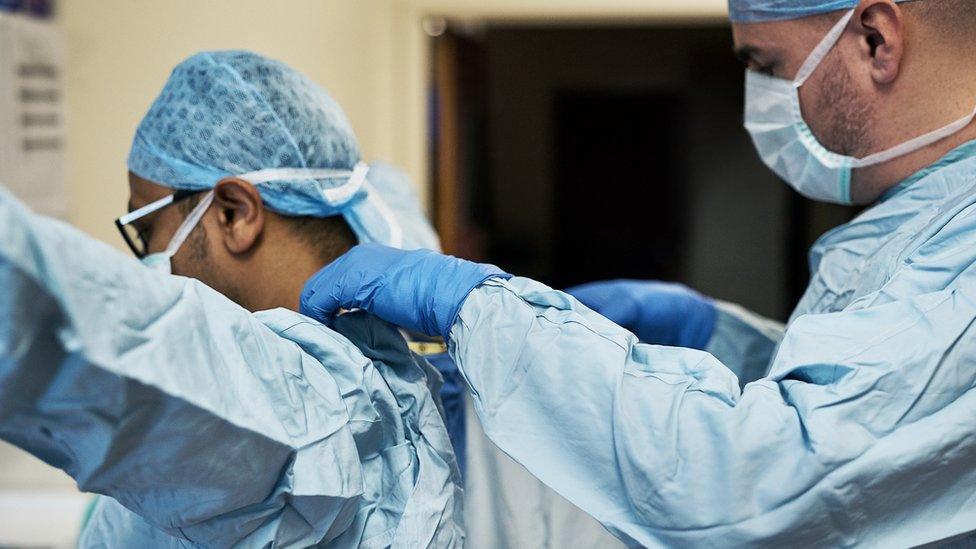Covid: Watchdog probes racial inequalities in healthcare
- Published
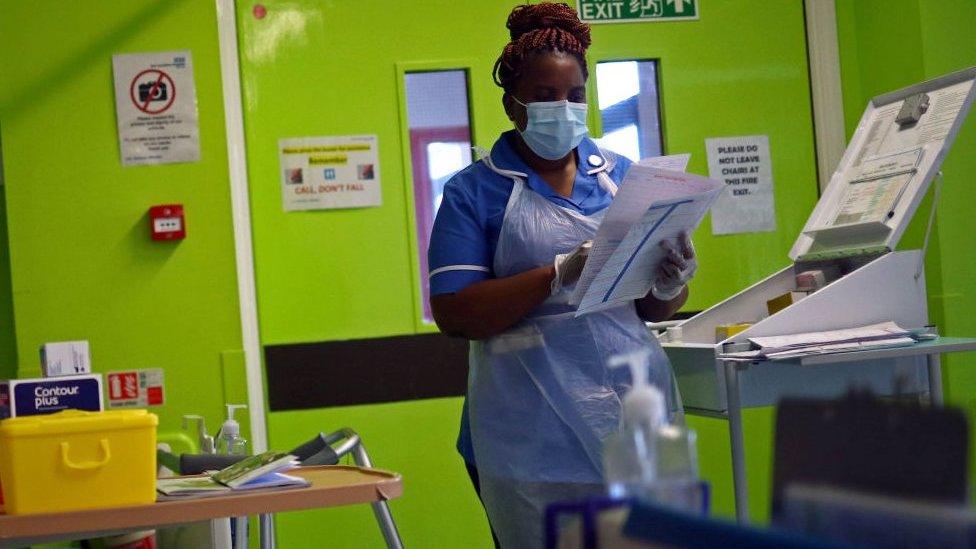
An inquiry is under way into why lower-paid health and social care workers from ethnic minorities are at greater risk from coronavirus.
The UK's human rights watchdog said it will examine "long-standing entrenched racial inequalities" that leave them disproportionately affected.
People from black, Asian and other ethnic minority groups are twice as likely as white people to be infected.
They are more likely to need intensive care and to die from the virus.
The Equality and Human Rights Commission (EHRC) said it wants to look at the experiences of health and social care workers and understand the "structural issues" at play.
Its inquiry will examine things such as the availability of workplace training and use of risk assessments.
The role of institutions like the NHS, local authorities, umbrella bodies and private firms that deliver care will also be assessed.
Rebecca Hilsenrath, chief executive of the EHRC, said the pandemic has "exposed racial inequality across the country".
"We know that ethnic minority groups are over-represented in lower-paid roles and the effect of the pandemic on those working in these jobs in health and social care is a life and death issue," she said.
"We need to understand the structural issues which have left people from a range of ethnic minorities at greater risk."
Ms Hilsenrath said the inquiry will also make recommendations for other working environments where ethnic minorities are over-represented in lower-paid roles.
It seeks to look at areas such as education, employment and housing across England, Scotland and Wales.
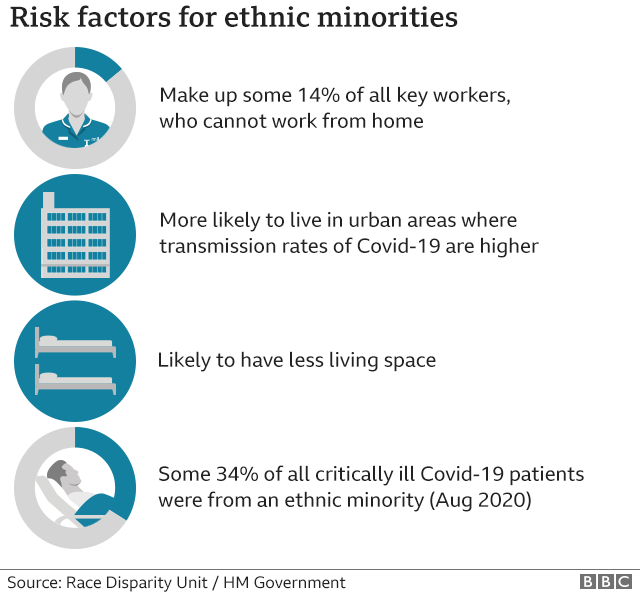
Government analysis published in August found people of Bangladeshi ethnicity had about twice as high a risk of death, external from Covid-19 as white British people.
People of Chinese, Indian, Pakistani, other Asian, black Caribbean and other black ethnicity had between a 10% and 50% higher risk of death when compared with white British people.
Last week, a report by the Labour Party said Covid-19 has "thrived" among black, Asian and ethnic minority (BAME) communities because of structural race discrimination.
Its author, Baroness Lawrence, said these groups were "over-exposed" and faced "barriers" to healthcare.
BAME coronavirus deaths: What's the risk for ethnic minorities?
Her comments came after a Public Health England report published in June said factors such as racism and health inequality, external may have contributed to their increased risk.
However, a government adviser said last month that "structural racism" was not in itself a "reasonable explanation" for rates differing between ethnic groups.
Dr Raghib Ali also suggested that focusing on other factors including jobs and housing conditions would help more people.
Equalities Minister Kemi Badenoch said higher transmission rates among BAME groups appeared to be down to "a range of socio-economic and geographical factors", including exposure at work, population density and household composition, as well as pre-existing health conditions.
The statutory inquiry is part of a broader piece of work by the commission, which includes a legal assessment of the Home Office's "hostile environment" immigration policies.

A SIMPLE GUIDE: How do I protect myself?
IMPACT: What the virus does to the body
ENDGAME: How do we get out of this mess?
WITHOUT SYMPTOMS: The mystery of 'silent spreaders'


ASK MARTIN LEWIS PODCAST: Talking you through the latest financial help for Lockdown 2.0
NEED A NEW SERIES FOR LOCKDOWN?: Watch all episodes of figuring-it-out comedy Twenties

- Published27 October 2020
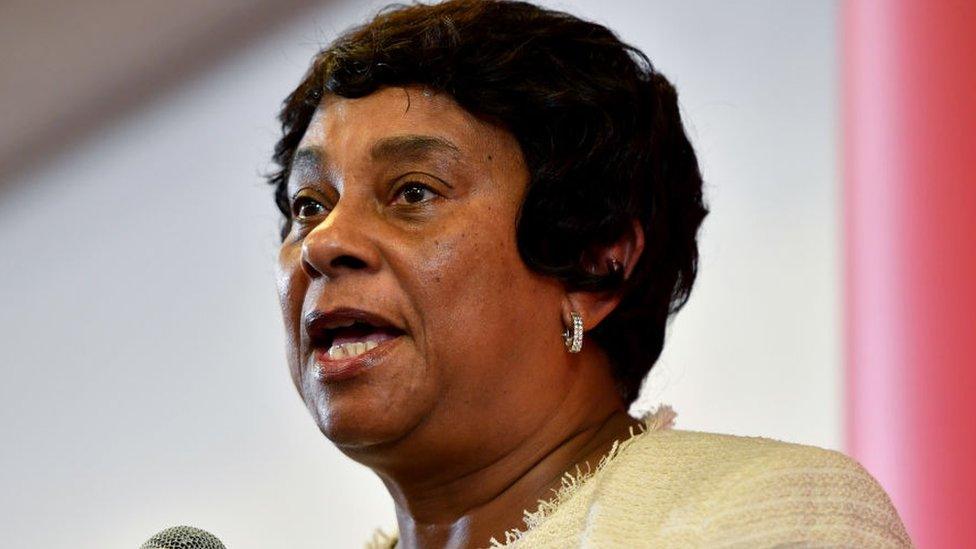
- Published22 October 2020
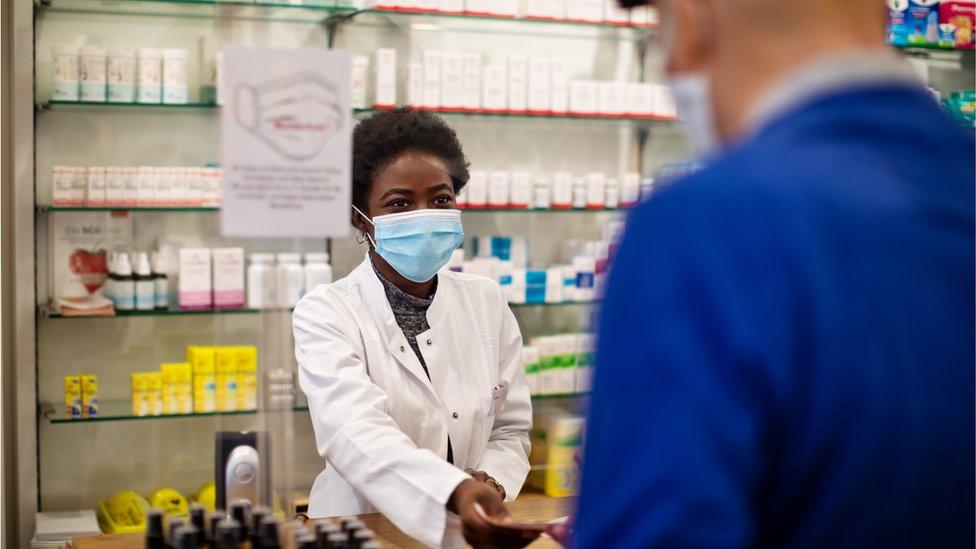
- Published5 August 2020
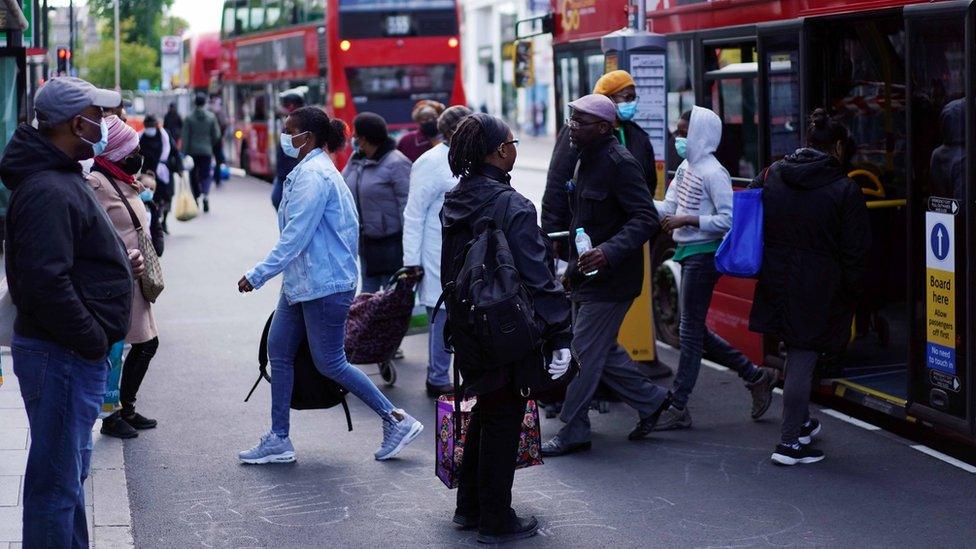
- Published29 July 2020
